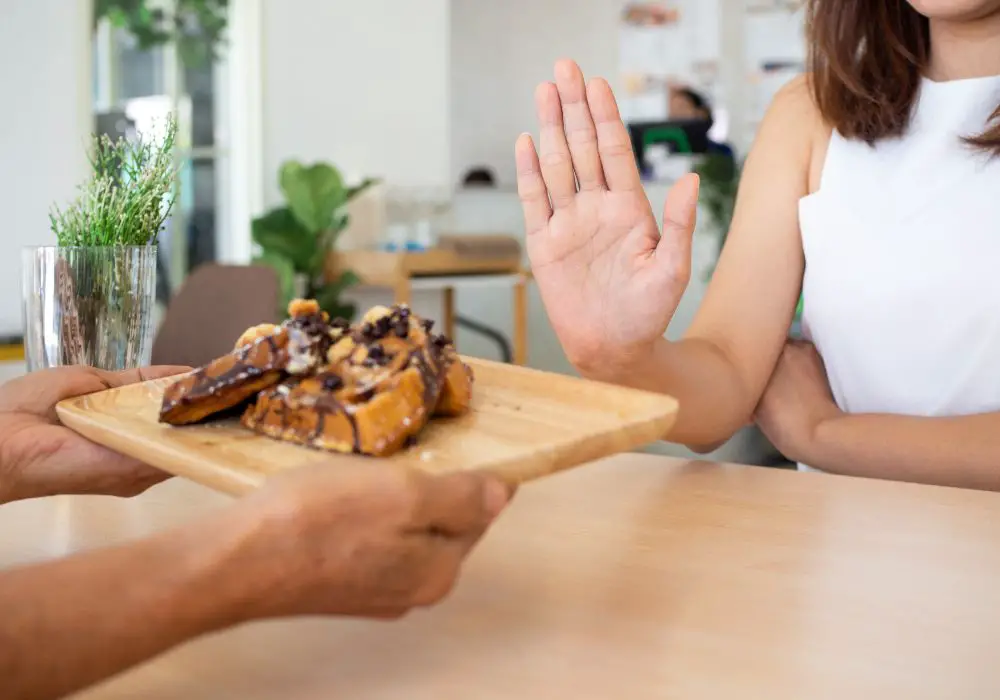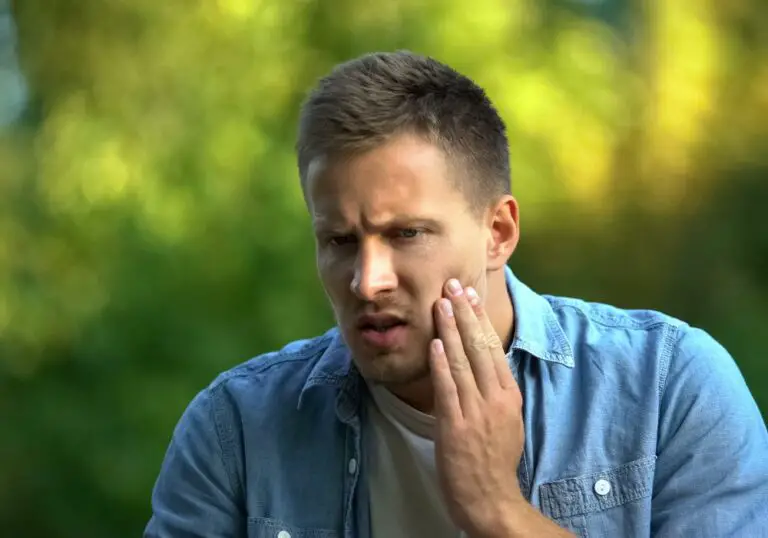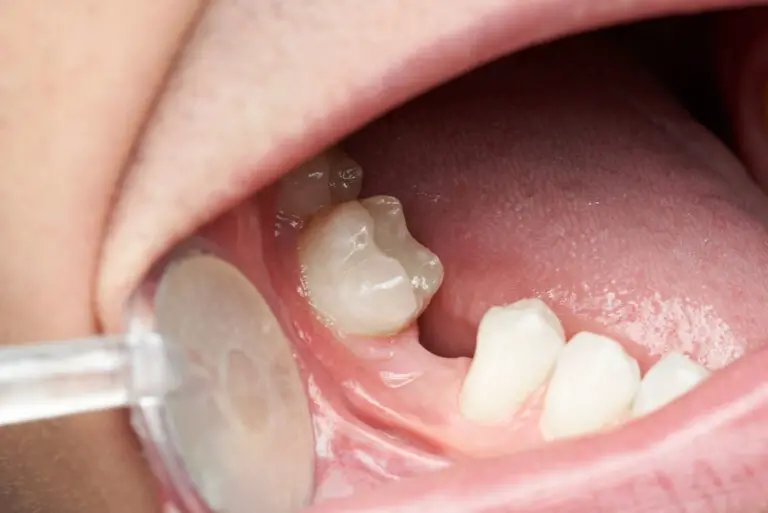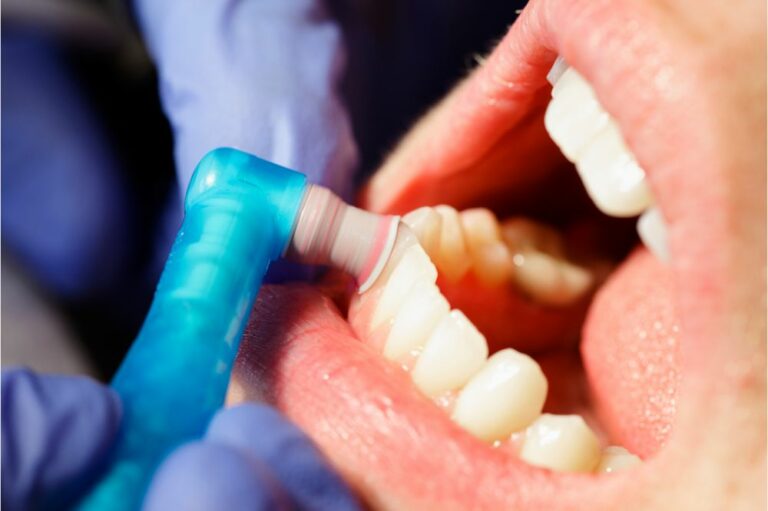Going through oral surgery is rarely fun but the recovery time afterward can be equally annoying. There are things you can’t eat or drink, stuff to be careful about, potential problems that can occur and force you to rush back to the dentist, antibiotics, painkillers, and other medicine you might have to take, and more.
Being careful what you can and can’t eat or drink may sound like a major issue, however, but it’s fairly easy to navigate around once you get the hang of it. It’s normal that we feel overly restricted in that regard at first but there are actually lots of different foods we can eat as long as they are not too hard and grainy, too hot, acidic, and spicy.
So, to give you some idea of what to eat after dental surgery, below we’ve listed 84 excellent and safe suggestions as well as some other tips to keep in mind.
What to Eat After Dental Surgery?
As you’d expect, the first big rule for foods you can and can’t eat after going through tooth extractions, dental implants, or another major oral surgery is that they need to be soft foods. Such foods not only minimize the need for chewing but they also minimize the risk of problems such as tiny hard pieces getting lodged in places where they shouldn’t, breaking up the blood clot that was forming over the surgery wound, and so on.
Naturally, you’d also want to focus on healthy foods as much as possible – especially right after surgery. At that moment, your body and immune system are under more stress than usual and they need help – or, at the very least, they need foods that don’t put them under even more unnecessary stress. In other words, focusing on healthy foods that come with extra vitamin C, minerals, omega-3, zinc, and other healthy ingredients is a good extra tip to keep in mind.
Still, the main priority should be foods that don’t irritate or interfere with the surgical site in any negative way. Fortunately, there are plenty of such options – here are our suggestions:
- Baby food
- Mashed black or baked beans
- Popsicles
- Milkshakes (but not from a straw)
- Chicken salad (with no celery)
- Steamed soft broccoli
- Custard
- Soft-steamed carrots and chickpeas
- Doughnuts
- Ensure
- Scrambled, poached, or fried eggs
- Egg salad
- Fish (salmon)
- Greek yogurt
- Applesauce
- Fruit juice
- Deli meats
- Ramen noodles
- Gravy
- Baked apples
- Well-boiled grits
- Ground meat (turkey, beef, pork, chicken, other)
- Meatballs
- Egg nog
- Spinach
- Ripe melons
- Cranberry sauce
- Muffins
- Fettuccine
- Refried beans
- Oatmeal
- Cream
- Pancakes
- Sandwich meats
- Cooked and soft pasta
- Cottage cheese
- Pies
- Key lime pie
- Smoothies
- Egg noodles
- Polenta
- Mascarpone cheese
- Very well-cooked pot roast with vegetables
- Tofu
- Pudding
- Biscuits – flakey, soft, or soaked to become soft
- Mousse
- Mushed-up fruits such as bananas, mangoes, or avocados
- Ricotta cheese
- Steamed vegetables
- Risotto
- Cheesecake
- Tuna salad
- Rice
- Mashed potatoes
- Sherbet
- Sour cream
- Miso Soup
- Canned peas
- Sweet potatoes
- Tapioca pudding
- Soft bread, usually soak in soup or something similar
- Tea
- Crème Brule
- Jell-O
- Crab cakes
- Waffles
- Casseroles
- Yellow squash
- Souffle
- Malt-0-meal
- Guacamole
- Clam chowder
- Humus
- Ice cream
- Kefir
- Macaroni and cheese
- Broth
- Cake
- Matzo ball soup
- Well-cooked butternut squash
- Protein powders
- Peanut butter
Of course, there are even more foods that can be mentioned here, as well as countless thousands of possible dishes made out of combinations of them. And this is great as it means that we really don’t need to feel all that restricted in what we eat after dental surgery – we just need to be a bit careful and thoughtful.
The key commonalities between all of them that need to be understood are the several big No-Nos such foods avoid. As far as you steer clear from the half a dozen or so inadvisable types of foods after dental surgery, everything should be fine.
What Foods NOT to Eat After Dental Surgery?

The foods, drinks, and other consumables you absolutely should avoid after dental surgery are the types of things that can interfere with the recovery of the surgical site in any way. These are foods that can accidentally harm and dislodge the forming blood clots and stop the wound healing process, foods that can get inside the tooth extractions sites and get stuck there, and foods and drinks that can cause irritations and inflammations that’d force you right back to the oral surgeon, and more.
Ideally, dental surgeons should tell you all of that right after the wisdom teeth removal, dental implant, or other major procedure. But, in case they missed something, here’s a good list of things to avoid:
- No drinking from straws as the suction can dislodge the blood clotting on top of the surgery/extraction sockets
- No carbonated, alcoholic, caffeinated, or hot beverages
- No smoking for at least 24 hours as that reduces the oxygen levels in our blood which slows down the healing process and increases the feeling of pain
- No acidic foods and drinks such as vinegar or lemon juice that can irritate the surgery site
- No spicy foods such as peppers or garlic that can irritate your gums
- No foods with seeds and nuts as small hard pieces can get lodged in the surgery site and/or break blood clotting
These six categories do admittedly include a lot of foods and drinks that most of us are used to consuming on a daily basis. They are fairly easy to avoid for a little wild, however, so the staying away from them for a day or few shouldn’t be all the trouble.
The lack of smoking can be particularly irritating for a lot of people but it’s also an important tip if you want to speed up your recovery and minimize the pain. Yes, smoking may feel like it “helps” with the nerves after the surgery but it also increases the pain which is hardly fun for anyone.
Additional Tips for Getting Through the Post-surgery Period
Now that you know what to avoid and what you can easily allow yourself, let’s quickly go over a few things you not only can but should do after a wisdom tooth removal, a dental implant, or another similar major dental procedure. These are things that can appear obvious but are often ignored or get forgotten by a lot of people. So, here are four simple tips to always keep in mind after a minor or major dental procedure, be it a simple tooth extraction or a dental implant surgery.
- Drink lots of water – this helps our bodies get rid of the toxins from the anesthesia and it helps our immune systems combat all the possible infections that can occur after a surgery.
- Be very gentle when rinsing your mouth with water during the first 24-48 hours – ideally, you’d do so with warm salt water too.
- If the bleeding persists for more than an hour, softly bite down on a moist black tea bag (at body temperature) as black tea helps with blood clotting.
- Call your dentist if you feel anything is out of order – even if it feels small and insignificant. It’s better to make one unnecessary call than to risk ignoring a problem that requires your dentist’s attention.
A lot of people do get into trouble when rinsing their mouths a bit too harshly after an operation. Your dentist should have warned you against that but they may have forgotten. Drinking water also sounds like a no-brainer but many people just don’t like doing it. If you are one of them, do try to do so at least after major surgeries as it really is important.
In Conclusion
As you can see, it is indeed important to be careful and mindful of what you eat and drink after a dental procedure but it’s also not all that complicated once you come to understand the basic principles behind these rules. So, if you just make sure to limit yourself to room-temperature and soft non-grainy, non-nutty, non-acidic, and non-spicy foods for a few days, everything should be all right.
What’s more, while it can feel frustrating to have to watch yourself for a few days, it’s not really something all that significant in the grand scheme of things – especially not compared to all the pain, drama, and health complications an important dental surgery usually saves us from.







